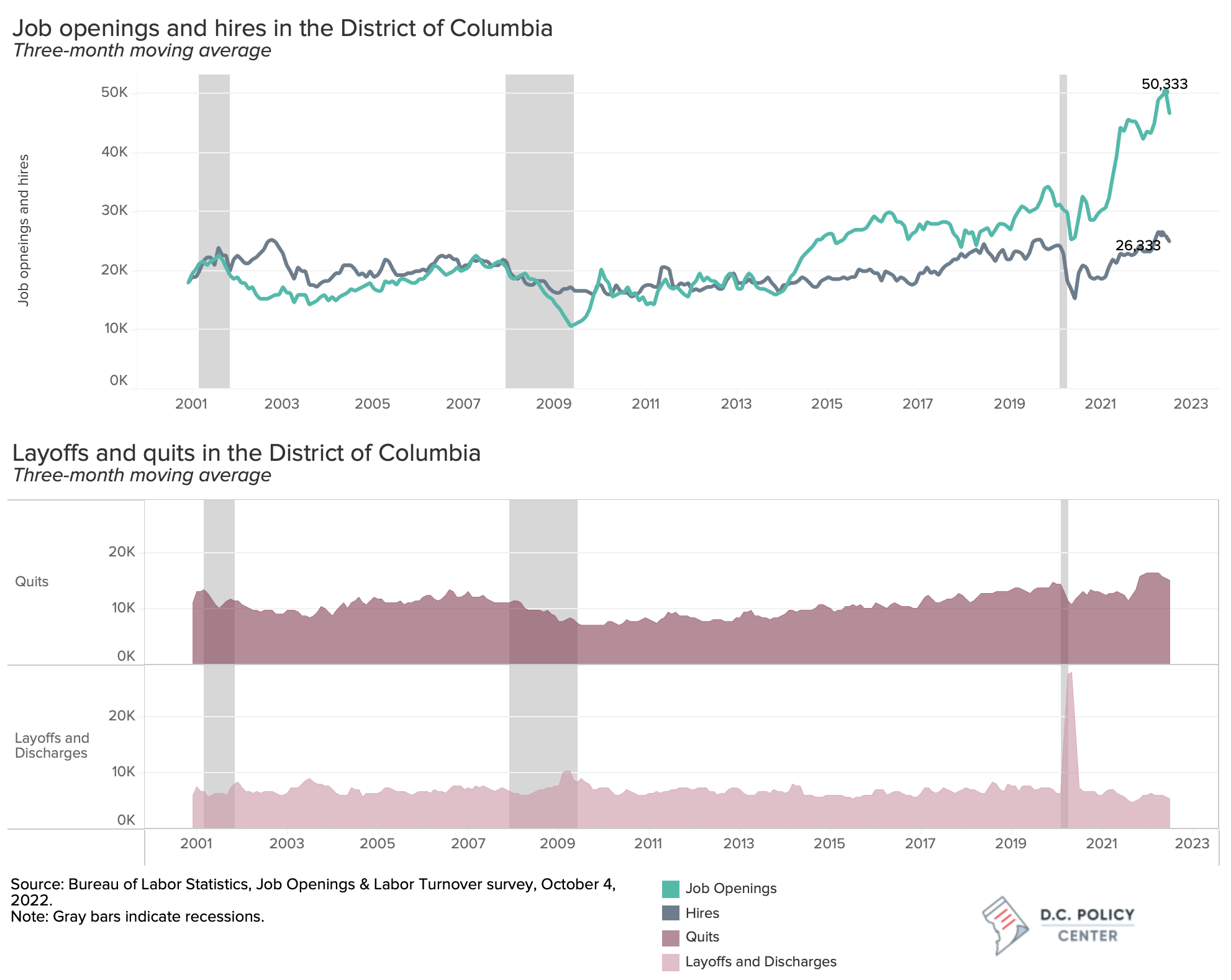While job openings remain at historically high levels, employment growth has not been strong enough to make up for all the losses the District experienced since the pandemic. Since June 2020—the first month employment growth turned positive after the pandemic, D.C. added 47,000 jobs, making up about half the job loss the city experienced in March, April, and May of 2020.
Part of the problem is that employers are having a hard time filling open positions. Since June 2021, there have been over 40,000 new job openings each month, and each month, employers have been able to fill only about 60 percent of these jobs.
The pandemic had such a dramatic effect on our lives that it is often our reference point for many things. But sometimes, it is helpful to look back further. It is true that employers are finding a difficult time to fill open positions, but this is not new. The gap between job openings and hires began widening in 2014, and since then, remained wide. At the same time, more people are quitting their jobs, but this is not new, either. Quits began their slow creep up also at about 2014.
A large number of job openings is generally good news: it signals that employers believe the future demand for their products or services will be strong. They want to expand. But the widening gap between open positions and hiring suggests that attracting qualified candidates to fill all open positions have increasingly become difficult in D.C. And data suggest the COVID-19 pandemic exacerbated this existing problem.
